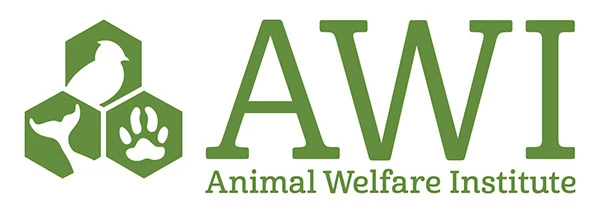
Digital Deeds: How Blockchain is Disrupting Traditional Real Estate Transactions
Blockchain Explained
Basics of Blockchain Technology
Imagine a world where real estate transactions are swift, secure, and seamless. That's the promise of blockchain technology. But what exactly is blockchain? Picture a digital ledger, but instead of being held in one place like a traditional ledger, copies exist simultaneously across multiple computers. These ledgers record transactions in 'blocks' with each one linked to the one before and after it, forming a 'chain'.
This technology is groundbreaking because it's nearly impossible to alter a single record without changing all others on every participant's computer. That makes blockchain extremely secure, transparent, and resistant to fraud.
Security Features and Trustless Transactions
One of blockchain's hallmarks in real estate is its ability to facilitate 'trustless' transactions. Normally, buying property requires middlemen - lawyers, banks, and brokers, all of whom need to verify the transaction's trustworthiness. This process is time-consuming and costly.
With blockchain, the system itself verifies the transaction's authenticity, significantly cutting the need for intermediaries. It uses complex cryptographic techniques to create a secure, immutable record. So, parties can confidently transact directly with one another. If someone attempts to alter a transaction record, the system's decentralized nature means they would need to change every single record of that transaction across all copies of the ledger simultaneously, which is virtually impossible.
Revolutionizing Real Estate with Blockchain
Digital Deeds and Smart Contracts
Blockchain is set to transform the way we think about real estate transactions, particularly with 'digital deeds' and 'smart contracts.' A digital deed is a blockchain-based record of property ownership. Unlike traditional deeds, its authenticity can be verified by anyone using the blockchain, reducing the potential for fraud.
Smart contracts go a step further. These are self-executing contracts with the terms directly written into code. They ensure that once conditions are met, actions are executed automatically. For example, when a payment is made, the deed is automatically transferred to the buyer without any manual processing. This means faster transactions, no intermediaries, and, importantly, no room for breaches of contract.
Streamlining Transactions and Reducing Costs
Traditional property transactions are often bogged down by various processes: inspections, title checks, legal procedures, and more. Each incurs fees and can delay the process. Blockchain, however, streamlines these steps.
By securely and transparently recording transactions, blockchain minimizes the need for some of the most time-consuming and costly aspects, like conducting background checks or verifying the legitimacy of documents. This efficiency could save buyers significant amounts of money and time, reducing transaction fees, and eliminating various middlemen from the equation.
The potential here is vast, especially for large, complex transactions typical of the real estate industry. With blockchain, they could become significantly more straightforward and transparent, giving both buyers and sellers peace of mind while saving them time and money.
Implementations and Case Studies
Examples of Blockchain in Real Estate
Blockchain in real estate isn't just a theoretical concept; it's a reality with tangible applications. Here are a few examples:
Sweden's Blockchain Land Registry: Sweden has taken significant strides in implementing blockchain technology for property transactions. Their land registry is transitioning to a blockchain-based system, making it more secure, efficient, and transparent.
RealT Platform in the United States: RealT, a platform in the U.S., allows investors to buy fractional ownership in real estate properties. The ownership is recorded on a blockchain, providing transparency, reducing costs, and enabling more accessible real estate investment opportunities.
Mattereum's Property Passport: Mattereum's platform uses blockchain to create 'property passports' that digitally represent physical assets. This could revolutionize property management, making it easier to verify ownership, track maintenance, and transfer ownership seamlessly.
Lessons from the Field
While these examples showcase the potential of blockchain in real estate, they've also uncovered some lessons. Implementing blockchain technology isn't without its challenges, including regulatory hurdles, the need for standardization, and broader adoption in the industry.
Yet, as the technology matures and more success stories emerge, it's becoming increasingly clear that blockchain is poised to revolutionize real estate, making transactions more efficient, secure, and cost-effective.
Legal and Regulatory Hurdles
Current Challenges and Potential Solutions
While blockchain offers significant benefits, it's not without its share of legal and regulatory challenges in the real estate sector:
Regulatory Compliance: Many countries have not yet adapted their legal frameworks to accommodate blockchain-based property transactions. This gap creates uncertainty and hinders broader adoption. Regulatory bodies need to catch up with technology, and there's a growing push for legal changes that can accommodate and regulate blockchain within real estate.
Privacy Concerns: Property records often contain sensitive personal information. Blockchain's transparent nature can raise concerns about data privacy and security. Balancing the technology's transparency with data protection is an ongoing challenge.
Smart Contract Enforceability: While smart contracts offer great promise, their enforceability in a legal context can be uncertain. The legal system needs to recognize and enforce smart contracts effectively.
Property Ownership Disputes: Resolving disputes related to property ownership recorded on a blockchain may be complicated. Traditional legal structures may need to adapt to efficiently handle such disputes.
Interoperability: Different blockchain platforms need to work together seamlessly to establish a unified real estate ecosystem. Achieving interoperability is a complex challenge but crucial for the success of blockchain in real estate.
Addressing these challenges will require collaboration between blockchain innovators, legal experts, and regulatory bodies to create a secure, reliable, and compliant framework for blockchain in real estate.
Looking Ahead: The Future of Blockchain in Real Estate
Expert Predictions and Market Readiness
As blockchain technology matures and real estate industry players become increasingly aware of its potential, experts predict a promising future. Here's what we might see:
Widespread Adoption: Over time, more countries are expected to adopt blockchain-based property transaction systems. This could lead to a global network of interoperable property records, making cross-border transactions smoother.
Reduced Costs: As blockchain streamlines processes, real estate transactions will become more cost-effective. Smart contracts, in particular, have the potential to significantly reduce legal fees and intermediaries' costs.
Increased Security: Blockchain's immutable ledger will make fraud and data tampering almost impossible. Property transactions will become more secure, reducing the risk of property-related scams.
Accessibility: Fractional ownership, as seen in platforms like RealT, will make real estate investment more accessible to a broader range of people. This can democratize property investment.
Transparency: Blockchain's transparency can help in verifying property histories, addressing concerns like encumbrances, land disputes, or illegal construction.
Efficiency and Speed: With transactions being automated and recorded on the blockchain, property transfers can become nearly instant, cutting down the time it takes to complete a real estate transaction.
The market readiness for blockchain in real estate is growing. Real estate professionals are recognizing its potential, and governments are showing a willingness to adapt regulations to accommodate blockchain technology. As these trends continue, we can expect blockchain to play a more prominent role in the real estate sector.
In Summary
Blockchain is more than just a buzzword; it's a technology that has the potential to revolutionize the real estate industry. With its secure, transparent, and efficient features, it can streamline property transactions, reduce costs, and provide a level of security that traditional methods can't match.
While there are challenges to overcome, such as regulatory hurdles and the need for legal adaptation, experts see a promising future for blockchain in real estate. Widespread adoption, reduced costs, increased security, accessibility, transparency, efficiency, and global interoperability are on the horizon.
As the real estate industry continues to embrace blockchain, it's essential to stay informed about these developments. Blockchain's role in real estate is not a matter of if, but when, and its impact will be felt by buyers, sellers, and industry professionals alike.
The possibilities are vast, and the future is bright for the intersection of blockchain and real estate.
WE OFFER OVER
25+
PROGRAMS
WE HAVE SERVED
12000+
STUDENTS
VETERAN STAFF
40+ Years
INDUSTRY EXPERIENCE
PROUDLY PROVIDING
23+ Years
OF EDUCATION
INLAND REAL ESTATE SCHOOL, INC. SUPPORTS

Campus Visiting Hours by appointment only:
1st-18th each month AM times, M-F
19th-end of the month PM times, M-F
Visiting hours need to be scheduled in advance
Not affiliated with The Inland Real Estate Group of Companies, Inc. and “The “Inland” name is a registered trademark being used under license”
OAK BROOK, ILLINOIS 60523. © INLAND REAL ESTATE SCHOOL, INC. A PROFESSIONAL LEARNING INSTITUTE, INC. COMPANY, 2010. ALL RIGHTS RESERVED.
NOT AFFILIATED WITH THE INLAND REAL ESTATE GROUP OF COMPANIES, INC. THE INLAND NAME IS USED UNDER LICENSE. Privacy Policy







